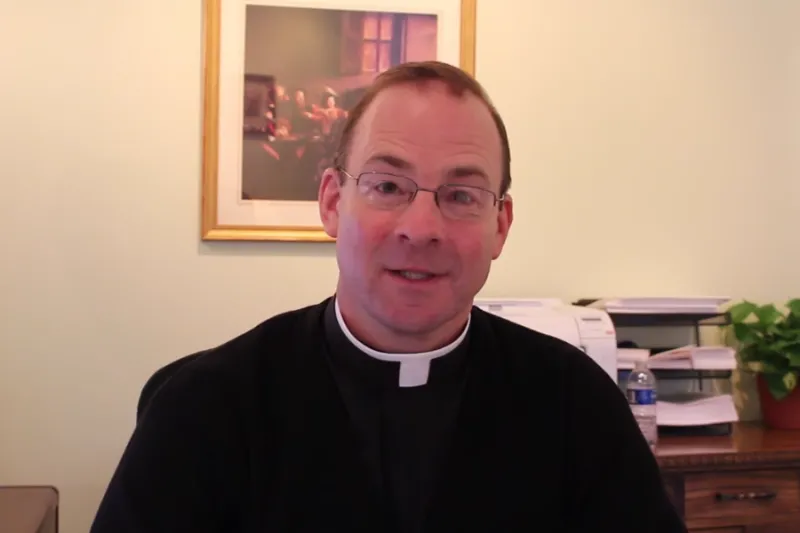
Rome, Italy, Mar 30, 2022 / 05:53 am (CNA).
The Vatican has appointed Connecticut priest Msgr. Thomas W. Powers as the next rector of the Pontifical North American College seminary (NAC) in Rome.
Powers, a priest of the Diocese of Bridgeport, Connecticut, was formerly a student of the NAC, graduating in 1997.
He also lived at the seminary for almost 10 years while serving in the Vatican’s Congregation for Bishops from 2005 to 2015. He was also an adjunct spiritual director for NAC seminarians during that time.
Powers’ term will begin on July 1, when he succeeds the seminary’s current rector, Father Peter Harman, the NAC announced on March 30.
Harman, who will end a six-year term as rector at the end of June, called the appointee a “talented, generous, faithful, and holy priest.”
Since 2015, Powers has been back in Connecticut, where he serves as vicar general and moderator of the curia, and as a parish pastor, in the Diocese of Bridgeport.
Before his ordination in 1997, Powers was a financial consultant with Anderson Consulting in New York.
“Although serving as the next rector of the Pontifical North American College was neither something I ever expected nor sought, I am very grateful to be asked to take on this important role,” Powers said.
“In accepting the appointment, I ask the Lord to grant me the grace to fulfill this role faithfully, and I entrust myself to Our Blessed Mother, Our Lady of Humility.”
Bishop Frank Caggiano, Powers’ bishop in Bridgeport, said he was not surprised by the choice of Powers for rector of the American seminary in Rome.
“While we will miss him terribly in the Diocese of Bridgeport — both as vicar general and as pastor — I am pleased for the college,” he said.
Bishop Robert Deeley of Portland, Maine, the chairman of the NAC board of governors, said “Msgr. Powers is extremely well-suited to serve as our next Rector, given his extensive experience in seminary formation, his many pastoral skills, and his prior work in Church governance and administration. We are very grateful for his acceptance of our nomination.”
Father Harmon’s term as NAC rector was originally expected to end at the end of January 2022, but he agreed to delay his departure until June 30.
If you value the news and views Catholic World Report provides, please consider donating to support our efforts. Your contribution will help us continue to make CWR available to all readers worldwide for free, without a subscription. Thank you for your generosity!
Click here for more information on donating to CWR. Click here to sign up for our newsletter.





Leave a Reply